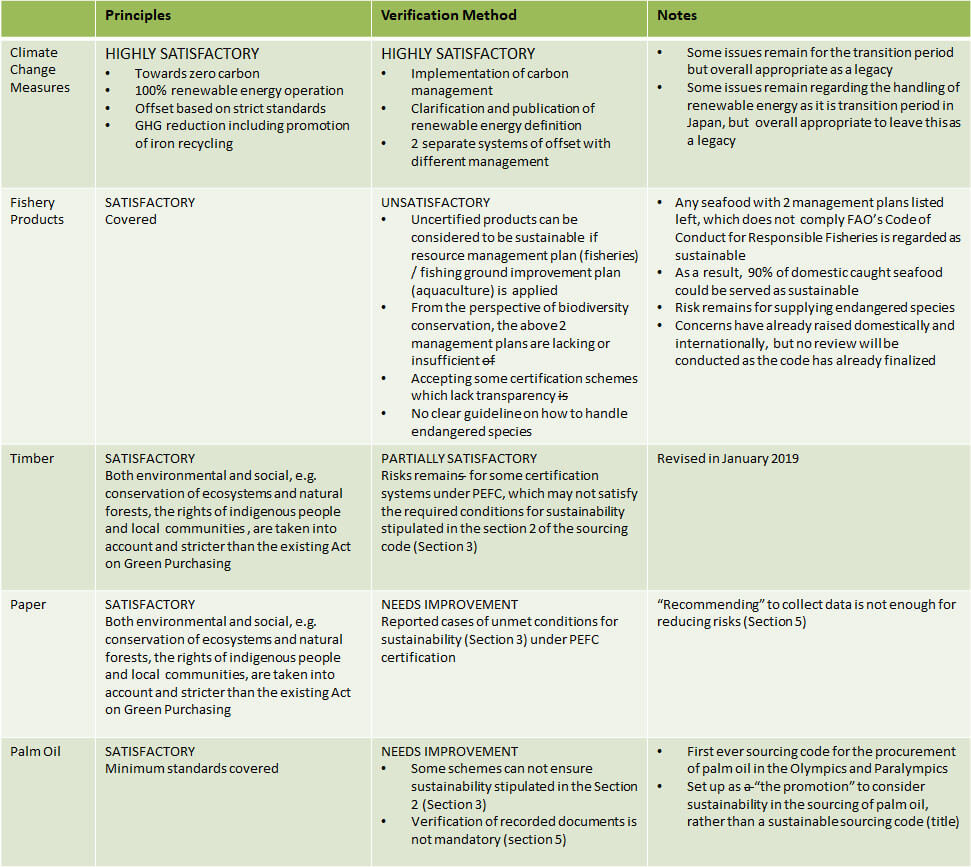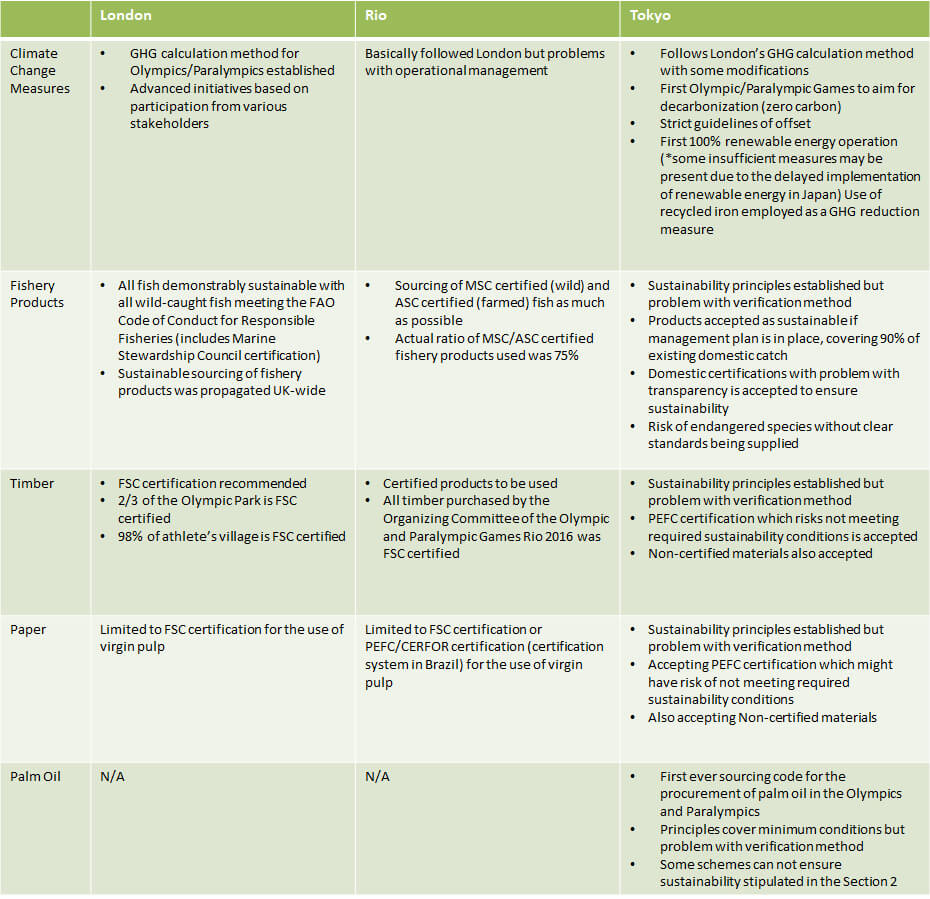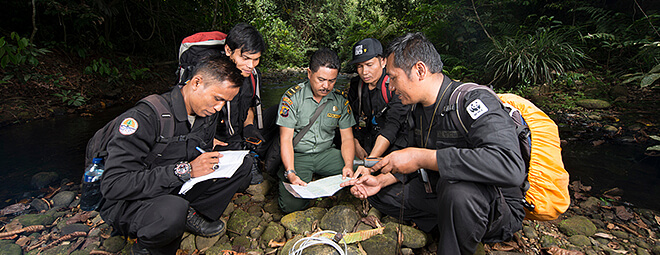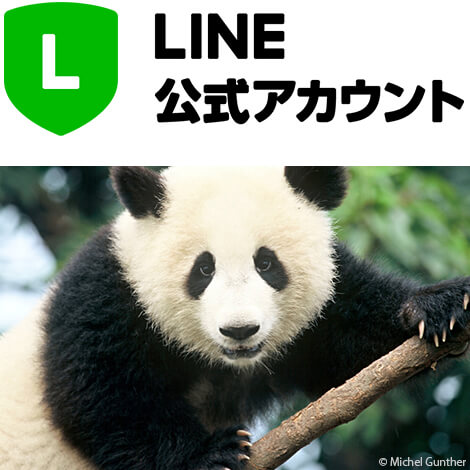Sustainable Sourcing Code for 2020
2020/03/12
Overview of the Article
The Tokyo 2020 Olympic and Paralympic Games are striving to contribute to the UN Sustainable Development Goals (SDGs). Initiatives are being put in place for the decarbonisation of the energy used in the Games and the establishment of environmentally sound sourcing policies (sourcing code) for timber, paper, palm oil, fishery products, etc. The sourcing policies are expected to be used not only for the Tokyo 2020 Games but also remain as the Tokyo Olympics’ legacy for ensuring sustainability policies of the future international events. While these sustainability policies adopted after a series of discussions include some advanced initiatives such as operational plan targeting zero carbon, there also remain elements that do not fully address important environmental concerns. WWF Japan presents an overview of the established sourcing code for each product and explains the proposed areas of improvements.
Sporting Event and Sustainability
The Tokyo 2020 Olympic and Paralympic Games are committed to contributing to the UN Sustainable Development Goals (SDGs). At the Tokyo Organising Committee of the Olympic and Paralympic Games, various members of stakeholders including the national government, Tokyo Metropolitan Government, economic organisations, and members of civil society have been discussing the topic of sustainability for the Tokyo 2020 Games since 2016.
The following five sustainability themes have been set and defined in detail in Sustainability Plan Version 2: climate change; resource management; natural environment and biodiversity; human rights, labor and fair business practices; involvement, cooperation and communication (engagement). As a specific measure, the Sustainable Sourcing Code has been established with regard to the supply chains for procured items including timber, paper products, palm oil, fishery products, and agricultural products.
Sustainable Initiatives at the Tokyo 2020 Olympic and Paralympic Games
Discussions to address sustainability in the operation of the Tokyo 2020 Games began in 2015, and Sustainable Plan and Sustainable Sourcing Code have been drawn up covering environmental, human rights, and other aspects of sustainability.
In addition, a Grievance Mechanism has been set up to handle cases of non-compliance with the Code.
The operational plan and the Sourcing Code include advanced initiatives such as the world's first sourcing code for palm oil and operational plan targeting zero carbon.
At the same time, the current sourcing code for timber, paper, palm oil, and especially fishery products have numerous points that do not ensure sustainability.
This article summarises and evaluates the sustainability initiatives of the Tokyo 2020 Games, including climate change mitigation measures (decarbonisation) and sourcing policies of fishery products, timber, paper, and palm oil.

This table compares the sustainability initiatives of the London 2012 Olympics and Paralympics, which were known as the “Green Olympics”, the Rio 2016 Olympics and Paralympics, and the Tokyo 2020 Olympics and Paralympics.
Sustainable Procurement at the Olympics and Paralympics: Evaluation and Comparison(Only the sourcing policis are evaluated for the Tokyo Games) As of august 2019, created by WWF Japan

This section gives WWF’s assessment of the sustainability initiatives and sourcing codes for the Tokyo 2020 Games as of the summer of 2019, as well as recommendations for improvement for the Sustainable Sourcing Code.
Policies and Sourcing Codes Recommended by WWF Japan
Table of Contents
1.Review of Climate Change Initiatives
2.Review of the Sourcing Code for Fishery Products and Recommendations for Improvement
3.Review of the Sourcing Code for Timber and Recommendations for Improvement(Japanese)
4.Review of the Sourcing Code for Paper and Recommendations for Improvement(Japanese)







